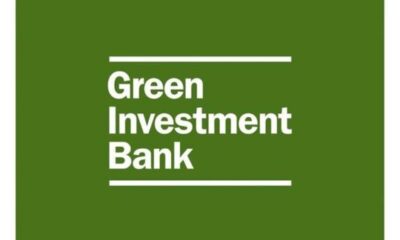

Economy
Private equity houses look to ethical investment
Over 90% of private equity firms admit that they face increasing pressure to address responsible funding practices from private and institutional investors.
A new report by PricewaterhouseCoopers (PwC) highlights that the private equity (PE) sector’s response to the environmental, social and governance (ESG) agenda is currently a “work in progress” but seen as a necessity.
Over 90% of private equity firms admit that they face increasing pressure to address responsible funding practices from private and institutional investors.
A new report by PricewaterhouseCoopers (PwC) highlights that the private equity (PE) sector’s response to the environmental, social and governance (ESG) agenda is currently a “work in progress” but seen as a necessity.
Malcolm Preston, global lead for sustainability and climate change at PwC, said, “It’s not surprising that only a handful of PE houses have found a way through this complex area. The challenge is for the rest to keep up with this pace, because expectations are only going to get higher.
“Many PE houses commented on ESG as an ‘imprecise science’ that will evolve over time but in such a competitive fundraising environment, investors may not be so patient.
“The reality is, existing valuation frameworks can be used to quantify intangible and tangible returns from managing environmental and social issues, but the prerequisite is access to data. It’s crucial that PE houses develop a systematic approach to collecting relevant ESG and financial data from their portfolio companies if they are to fully understand and report on the value ESG creates.”
The message from investors is getting louder and PE houses have caught on. But recognising that investors want greater consideration of ESG and putting in place adequately robust policies to measure performance are two very different things. Even though 94% of the people from the report’s survey agreed that ESG activities created value for their product, only 40% have started to build processes that measure the value these initiatives would have.
As a potential investor, you have the power to vote with your feet. If you are interested in making responsible, sustainable investments then get in touch with your IFA to find out more. Alternatively, fill in our online form and we can put you in touch with a specialist ethical investor.
Even if you’re not currently considering an investment, you can help drive home the importance of ethics in the banking; March is Move Your Money month when people are switching to banks that take ethics more seriously. We looked at the top five ethical banks in a recent article, which will make the choice that bit easier.
Related articles:


 Environment12 months ago
Environment12 months agoAre Polymer Banknotes: an Eco-Friendly Trend or a Groundswell?

 Features11 months ago
Features11 months agoEco-Friendly Cryptocurrencies: Sustainable Investment Choices

 Features12 months ago
Features12 months agoEco-Friendly Crypto Traders Must Find the Right Exchange

 Energy11 months ago
Energy11 months agoThe Growing Role of Solar Panels in Ireland’s Energy Future




























